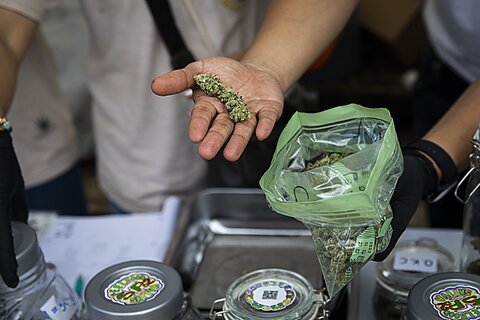
This article appeared on Substack on September 29, 2023.
The United Nations has released a report that calls for ending criminal penalties for drug use. Decriminalization is in line with libertarian principles, and penalties against users generate substantial harms, even when jail terms are absent (lower employment prospects, loss of public housing, deportation, reduced individual liberty, and racial disparities in police interactions).
But legalizing use is a halfway measure that often fails to eliminate harm from prohibition or even makes things worse.
Legalizing possession, but not production, does not eliminate the underground market, so violence and quality control issues remain. Indeed, to the extent decriminalization increases demand, it expands the black market and thus causes more violence. This describes Oregon, where violence and overdoses failed to decline even after decriminalization.
Another risk is that the criminal justice resources freed up from decriminalization shift to increased enforcement against drug supply, making violence and quality control problems worse. Enforcement pushes more transactions out of the legal sphere and disrupts agreements between market participants, increasing the scope for violence.
These concerns might seem inconsistent with the experience of some cities, states, or countries that have decriminalized and experienced reductions in prohibition‐induced harms. Portugal’s drug decriminalization, for example, is often seen as responsible for the country’s low drug mortality rate. Decriminalization in the Netherlands is similarly praised for producing low heroin use and low HIV prevalence among users.
The likely explanation is that, while these places have labeled their policies as decriminalization, the policy changes also reduced supply‐side enforcement, implying less disruption of the underground markets. Thus these examples again show that eliminating supply‐side prohibition is crucial.
The UN should call for total legalization, the only approach that will fully resolve the harms identified in its report.








